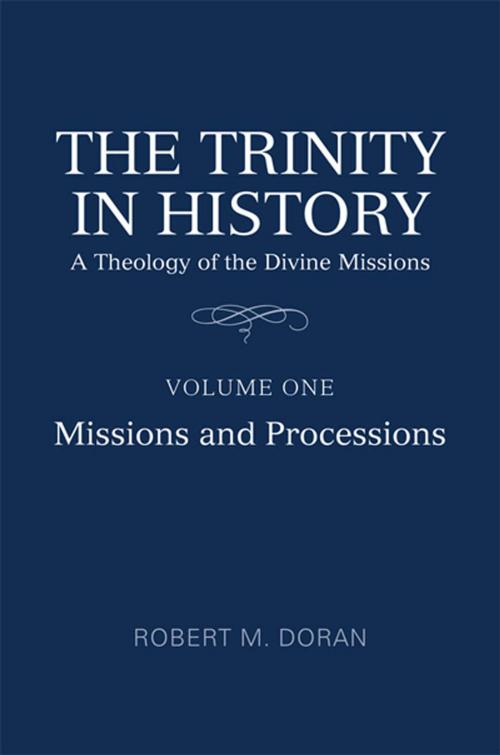The Trinity in History
A Theology of the Divine Missions, Volume 1: Missions and Processions
Nonfiction, Religion & Spirituality, Theology, Philosophy, Christianity| Author: | Robert M. Doran SJ | ISBN: | 9781442665224 |
| Publisher: | University of Toronto Press, Scholarly Publishing Division | Publication: | September 30, 2012 |
| Imprint: | Language: | English |
| Author: | Robert M. Doran SJ |
| ISBN: | 9781442665224 |
| Publisher: | University of Toronto Press, Scholarly Publishing Division |
| Publication: | September 30, 2012 |
| Imprint: | |
| Language: | English |
The Trinity in History is the first volume in a new series by Robert M. Doran that uses the thought of Bernard Lonergan to develop a unified field structure for systematic work in theology. Building on his successful and thought-provoking Theology and the Dialectics of History and What Is Systematic Theology?, Doran works out a starting point for a contemporary theology of history and proposes a new application of the ‘psychological analogy’ for understanding the Christian doctrine of the Trinity.
Advancing the work of Lonergan, Augustine, and Thomas Aquinas, The Trinity in History also enters into conversation with contemporary philosophical emphases, especially with the mimetic theory of noted anthropological philosopher René Girard. Doran suggests several refinements of Lonergan’s notion of functional specialization – developing a perspective for including the data of various religious traditions in theological construction, and establishing this theory’s relevance for contemporary interreligious dialogue.
The Trinity in History is the first volume in a new series by Robert M. Doran that uses the thought of Bernard Lonergan to develop a unified field structure for systematic work in theology. Building on his successful and thought-provoking Theology and the Dialectics of History and What Is Systematic Theology?, Doran works out a starting point for a contemporary theology of history and proposes a new application of the ‘psychological analogy’ for understanding the Christian doctrine of the Trinity.
Advancing the work of Lonergan, Augustine, and Thomas Aquinas, The Trinity in History also enters into conversation with contemporary philosophical emphases, especially with the mimetic theory of noted anthropological philosopher René Girard. Doran suggests several refinements of Lonergan’s notion of functional specialization – developing a perspective for including the data of various religious traditions in theological construction, and establishing this theory’s relevance for contemporary interreligious dialogue.















